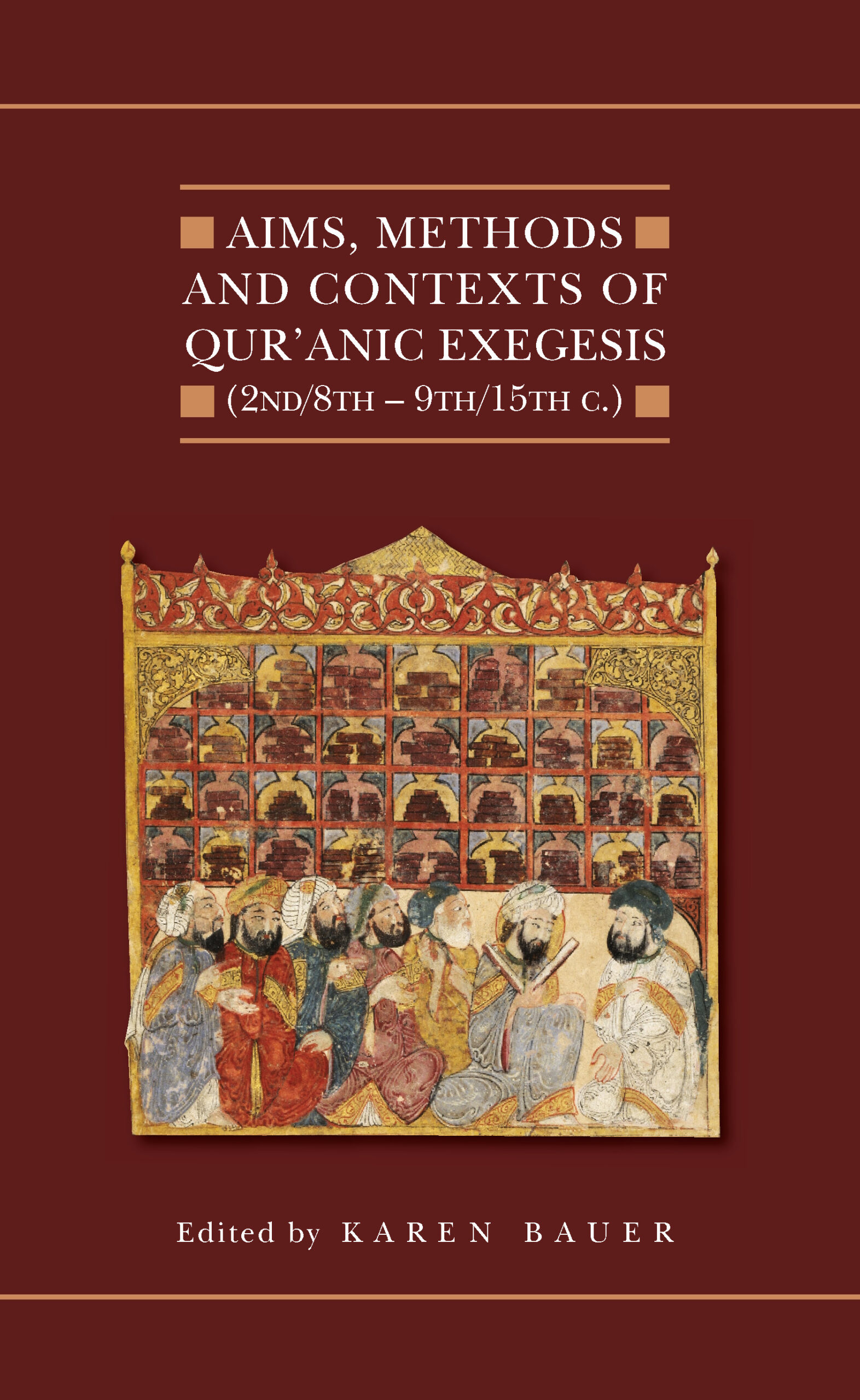Medieval interpretations of the Qur’an(also Koran. Arabic term meaning, ‘recitation’ or ‘scripture’): Muslims believe that the Holy Qur’an contains divine revelations to the Prophet Muhammed received in Mecca and Medina over a period of… More often serve as points of reference for Muslim thought; yet Qur’an commentaries were shaped not only by the Qur’an itself, but also by their authors’ ideological viewpoints, their theories of interpretation, their methods, and the conventions of the genre.
This volume is the first to focus solely on the complicated relationship between exegetes’ theoretical aims, their practical methods of writing, and the historical and intellectual contexts of Qur’an commentaries (tafsīr). Experts in various aspects of the Qur’an and its interpretation have contributed essays, spanning the 2nd/8th to the 9th/15th centuries, the period in which the commentarial tradition developed and flourished. They emphasise the ways in which geography, human networks, hermeneutical systems and genre boundaries affected the writing of these texts. This volume offers fresh analytical perspectives and addresses new methods for the study of tafsīr. It also provides resources for scholars, by including editions and translations of the introductions to al-Basīṭ of Abū’-Hasan ʿAlī al-Wāḥidī (d. 486/1076) and the Tahdhīb fī Tafsīr al-Qurʾān of al-Ḥākim al-Jishumī (d. 494/1101), as well as translated selections from the introduction to the tafsīr of ʿAbd al-Razzāq al-Kāshānī (d. 736/1336). The detailed studies in this volume will help scholars and students alike to comprehend accurately the purpose and content of Qur’an commentaries individually and as a genre.
Notes on Contributors
Note on Transliteration, Conventions and Abbreviations
Introduction
Karen Bauer
I. The Aims of Tafsīr
1. Tafsīr and Unlocking the Historical Qur’an: Back to Basics?
Feras Hamza
2. Justifying the Genre: A Study of Introductions to Classical works of Tafsīr
Karen Bauer
3. The Introduction to al-Wāḥidī’s al-Basīt: An Edition, Translation and Commentary
Walid A. Saleh
4. Towards a Reconstruction of the Muʿtazilī Tradition of Qur’anic Exegesis: Reading the Introduction to the Tahdhīb of al-Ḥākim al-Jishumī (d. 494/1101) and Its Application
Suleiman A. Mourad
II. Methods and Sources of Tafsīr
5. Early Shi‘i Hermeneutics: Some Exegetical Techniques Attributed to the Shi‘i Imams
Robert Gleave
6. The Construction of the Arabian Historical Context in Muslim Interpretation of the Qur’an
Andrew Rippin
7. Methods and Contexts in the Use of Hadiths in Classical Tafsīr Literature: The Exegesis of Q. 21:85 and Q. 17:1
Roberto Tottoli
8. Letter by Letter: Tracing the Textual Genealogy of a Sufi Tafsīr
Martin Nguyen
9. Fakhr al-Dīn al-Rāzī’s System of Inquiry
Tariq Jaffer
10. Master of the Obvious: Understanding Ẓāhir Interpretations in Qur’anic Exegesis
Ludmila Zamah
11. Jalāl al-Dīn al-Suyūṭī, the Muʿawwidhatān and the Modes of Exegesis
Stephen Burge
III. Contextualising Tafsīr
12. A Schoolmaster, Storyteller, Exegete, and Warrior at Work in Khurāsān: al-Ḍaḥḥāk b. Muzāḥim al-Hilālī (d. 106/ 724)
Claude Gilliot
13. Methodologies for the Dating of Exegetical Works and Traditions: Can the Lost Tafsīrof Kalbī be Recovered from Tafsīr Ibn ʿAbbās (also known as al-Wādiḥ)?
Michael E. Pregill
Bibliography
Index of Qur’anic Citations
General Index
‘[T]his is a highly valuable contribution to the field which stakes out the frontiers in tafsir studies. In doing so it shows the need to at reconstructing the exegetes’ hermeneutics. It also shows that early dating of sources and concepts appears to be becoming more plausible, possibly indicating that linguistics has functioned as the necessary sustenance of tafsir
– Ulrika Martensson, Journal of Qur’anic Studies
Karen Bauer received her PhD from Princeton University (2008) and is currently a Research Associate at the Institute of Ismaili Studies. She specialises in tafsīr and gender studies, particularly discourses on women’s status in tafsīr. She is interested in placing these discourses in their social and intellectual contexts. To that end she has explored questions such as the audience for works of tafsīr. She has also published on the question of women as judges in Islamic law and women’s status in the Qur’an. She is currently preparing a monograph on the diachronic development of interpretations on women’s status in works of tafsīr.

